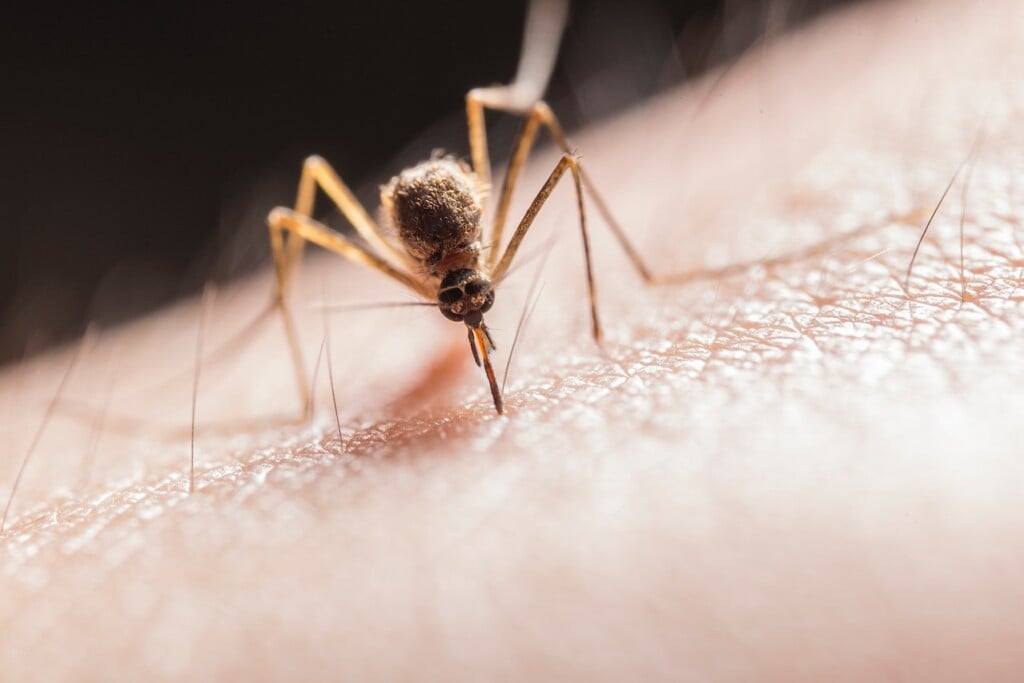Dead bird, mosquitoes test positive for West Nile Virus in southern Illinois

PULASKI COUNTY, Ill. (KBSI) – A dead bird tested positive for West Nile Virus and there was one new case of WNV in mosquitoes for the southern seven county region of Illinois.
This is the first case of WNV documented in a dead bird and the fourth case in mosquitoes by the Southern 7 Health Department in 2024.
No human cases of WNV have been reported so far this year.
On July 9, S7HD Environmental Health Services (EHS) staff collected the dead bird in Pulaski County. It was submitted for testing to Veterinary Diagnostic Lab at the University of Illinois.
Results were received and documented by the health department on July 18.
Health officials stress the importance to residents of reporting dead birds from unknown reasons to their local health department for testing. The birds must have eyes still intact and show no obvious signs of decay.
Continued weekly testing of mosquito traps throughout the seven country region resulted in the fourth documented case of WNV in mosquitoes on July 17.
Southern 7 EHS staff collected the mosquitoes from traps in Massac County. Tests confirmed the positive case on July 18.
Reports in early July of positive tests by the health department in mosquitoes trapped in Alexander, Hardin and Johnson counties. Traps were placed in each of the lower seven counties in May.
West Nile Virus is not spread through coughing, sneezing or touching. It is not spread by touching live or dead animals. People are cautioned to avoid bare-handed contact when touching any dead animal. When disposing of a dead bird, use gloves or double plastic bags to place the carcass in a garbage can.
The virus also cannot be spread through eating infected birds or animals. Always follow instructions for fully cooking meat from either birds or mammals.
Common symptoms of West Nile Virus include fever, nausea, headache and muscle aches. Symptoms can last from a few days to a few weeks. However, four out of five people infected with WNV will not show symptoms. In rare cases, severe illness including meningitis, encephalitis, or even death, can occur. People over the age of 60 and those with weakened immune systems are at higher risk for severe illness from the virus. If you have symptoms of West Nile virus, contact your physician immediately.
There are no vaccines to prevent or medications to treat WNV in people.
Follow the three “R’s” – Reduce, Repel, and Report.
- REDUCE – make sure doors and windows have tight-fitting screens. Repair or replace screens that have tears or other openings. Try to keep doors and windows shut. Eliminate, or refresh each week, all sources of standing water where mosquitoes can breed, including water in bird baths, ponds, flowerpots, wading pools, old tires, and any other containers.
- REPEL – when outdoors, wear shoes and socks, long pants and a light-colored, long-sleeved shirt, and apply insect repellent that contains DEET, picaridin, oil of lemon eucalyptus, or IR 3535 according to label instructions. Consult a physician before using repellents on infants. Do not use products containing oil of lemon eucalyptus (OLE) or paramenthane-diol (PMD) on children under 3 years old. Do not apply insect repellent to a child’s hands, eyes, mouth, cuts, or irritated skin. Spray insect repellent onto your hands and then apply to a child’s face.
- REPORT – report locations where you see water sitting stagnant for more than a week such as roadside ditches, flooded yards, and similar locations that may produce mosquitoes. The local health department or city government may be able to add larvicide to the water, which will kill any mosquito eggs.
Trapping mosquitoes will continue until early fall.

